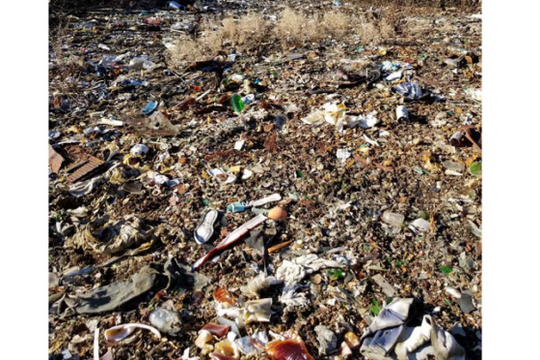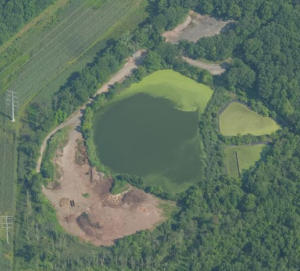

- This event has passed.
Enviro Issue on our Doorstep – Rolling Knolls Landfill Superfund
January 14, 2021 at 6:00 pm - 7:00 pm
Register to attend this FREE Zoom call


Registration for this event is closed. If you experience technical difficulties during the call email vthorpe@greatswamp.org
GSWA invites you to catch up on the progress being made by the Rolling Knolls Superfund Community Advisory Group (CAG). Join their next Zoom meeting for:
The introduction of the CAG’s Environmental consultant and a review of their documents (to date)
U.S. Fish & Wildlife Service’s upcoming field investigation
We have posted to our website several EPA documents pursuant to a Freedom of Information Act request HERE – we will continue to upload these documents as they become available.
Join the meeting and get informed!
Login information will be emailed to you after you register to attend.
What is the Rolling Knolls Landfill?


Landfill operations contaminated the soil, sediment, surface water, and groundwater. Contaminants consist of elevated levels of: arsenic, lead, mercury, polycyclic aromatic hydrocarbons (PAHs), pesticides, phthalates, polychlorinated biphenyls (PCBs), volatile organic compounds (VOCs), semi-volatile organic compounds (SVOCs), freon compounds, dioxin, and furans.
What is the Current Status?
After many years of investigation, the EPA determined that the site was a threat to people and the environment and the site was placed on the EPA’s National Priorities List for cleanup in 2003. What exactly does this mean?
In 1980, after toxic waste dumps such as Love Canal received national attention and the public learned about the risks to human health and the environment caused by contamination, Congress established the Comprehensive Environmental Response, Compensation and Liability Act (CERCLA), more commonly known as Superfund. The Superfund law allows EPA to clean up contaminated sites, including requiring responsible parties to perform the cleanup or pay for it.
Learn more about the superfund process HERE.
What is GSWA’s Role?
Community acceptance is where we, the community, play an important role. GSWA has established a Community Advisory Group (CAG) through the EPA so that everyone’s voices may be heard.
A CAG is made up of representatives with diverse community interests, including residents near the site and who may be impacted by the site, local environmental groups, local government officials, local businesses, and possibly responsible parties. The CAG purpose is to provide a public forum for the community to present and discuss their needs and concerns and to offer input to EPA.
In addition to forming a CAG, we are working with EPA to obtain an independent professional to review and explain information to the community, including the Feasibility Study and proposed cleanup plan, through EPA’s Technical Assistance Services for Communities (TASC) program. The TASC program will provide a technical advisor to help us understand complex environmental information. This will be followed up with a more formal request for a Technical Assistance Grant (TAG). Click HERE to learn more about CAGs and Superfunds.
Since the fight to stop the jetport over 50 years ago, the residents of our local communities have fought to preserve and protect our environment. Let us continue that tradition and ensure that the Rolling Knolls superfund site is restored to protect human health and the environment through ecological revitalization which supports functioning and sustainable habitat.